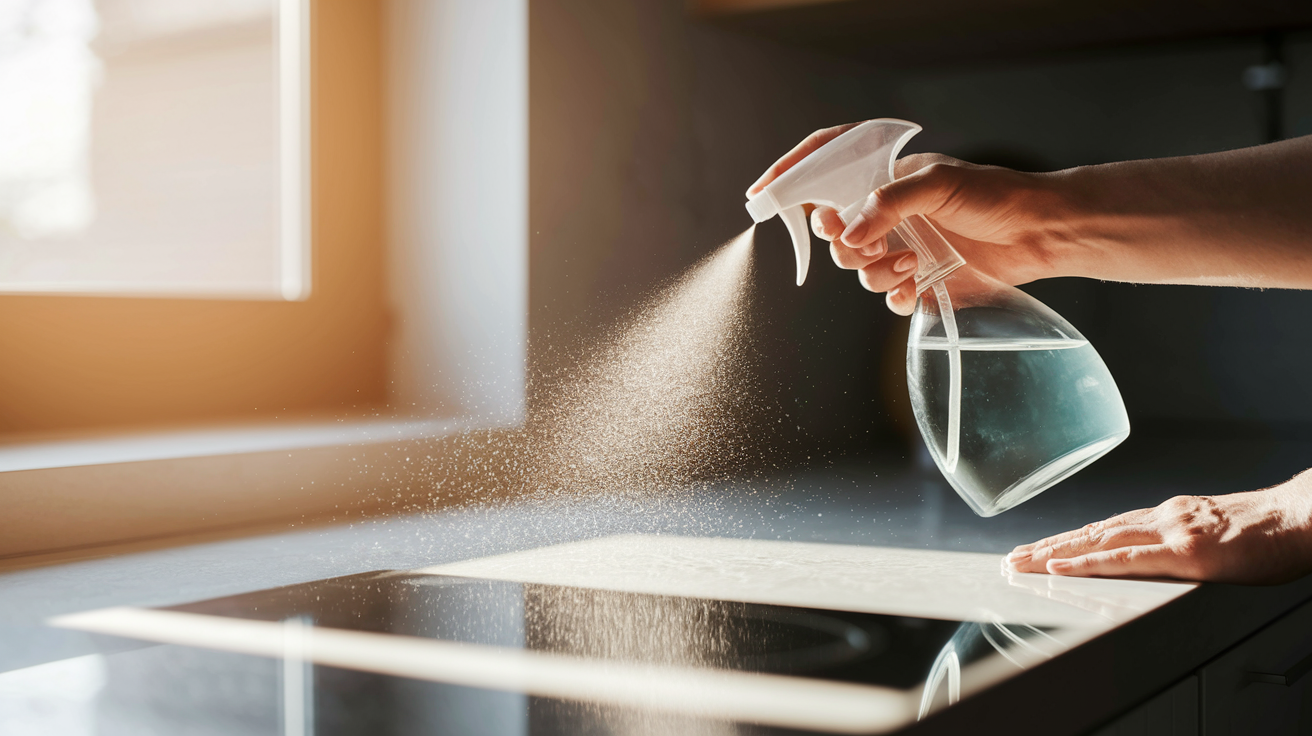Taking care of your home’s exterior is just as important as maintaining the inside, but outdoor cleaners can be pricey and not always environmentally friendly.
That’s why many homeowners are turning to homemade options that are safe, affordable, and surprisingly effective.
In this blog, I’ll introduce you to a do-it-yourself house wash made with everyday ingredients you likely already have in your kitchen or laundry room.
It’s a straightforward way to remove dirt, mold, and grime without relying on strong chemicals or expensive brands.
Beyond looks, keeping your walls clean can help prevent damage over time. Plus, a well-kept exterior sends a positive message to visitors and neighbors.
If you’re searching for a reliable way to care for your home without breaking the bank, this guide is for you.
Let’s examine how you can mix your own cleaning solution and keep your house looking its best.
What Is aHomemade House Wash?
A homemade house wash is a DIY cleaning solutionmade with common household ingredients. It’s designed to remove dirt, algae, mold, and mildew from the outside of your home.
Why is this important? Dirt and grime can build up over time, making your home look dingy and unkempt. Mold or mildewcan cause long-term damage.
A homemade house wash helps you cleanyour home’s exterior safely and effectively.
The benefits are clear:
- Eco-friendlyand non-toxic: No harsh chemicals.
- Cost-effective: You’ll spend a fraction of what commercial cleaners cost.
- Customizable: You can adjust the recipe for different surfaces, whether it’s vinyl, brick, wood, or concrete.
It’s simple to make and can be used on many types of surfaces around your home. I wasamazed byhow easily I couldtackle the buildup of grime without spending a lot of money.
Essential Ingredients
Making your house wash doesn’t need to be complicated. You need a few basic ingredients. To create your own DIY homemade cleaners, gather these essential supplies:
- Measuring cups
- Funnels
- Spray bottles (any size, depending on your needs)
You’ll also need these key ingredients:
- Distilled white vinegar (5%)
- Demineralized or deionized water (for better results without streaks)
- Isopropyl alcohol
- Dishwashing liquid
- Essential oils (for added cleaning power and fragrance)
Step-by-Step Guide on Making Homemade House Wash
Making your DIY homemade cleaners is a simple and effective way to keep your home clean while saving money. Follow these easy steps to create budget-friendly, eco-friendly cleaners:
1. All-Purpose Cleaner
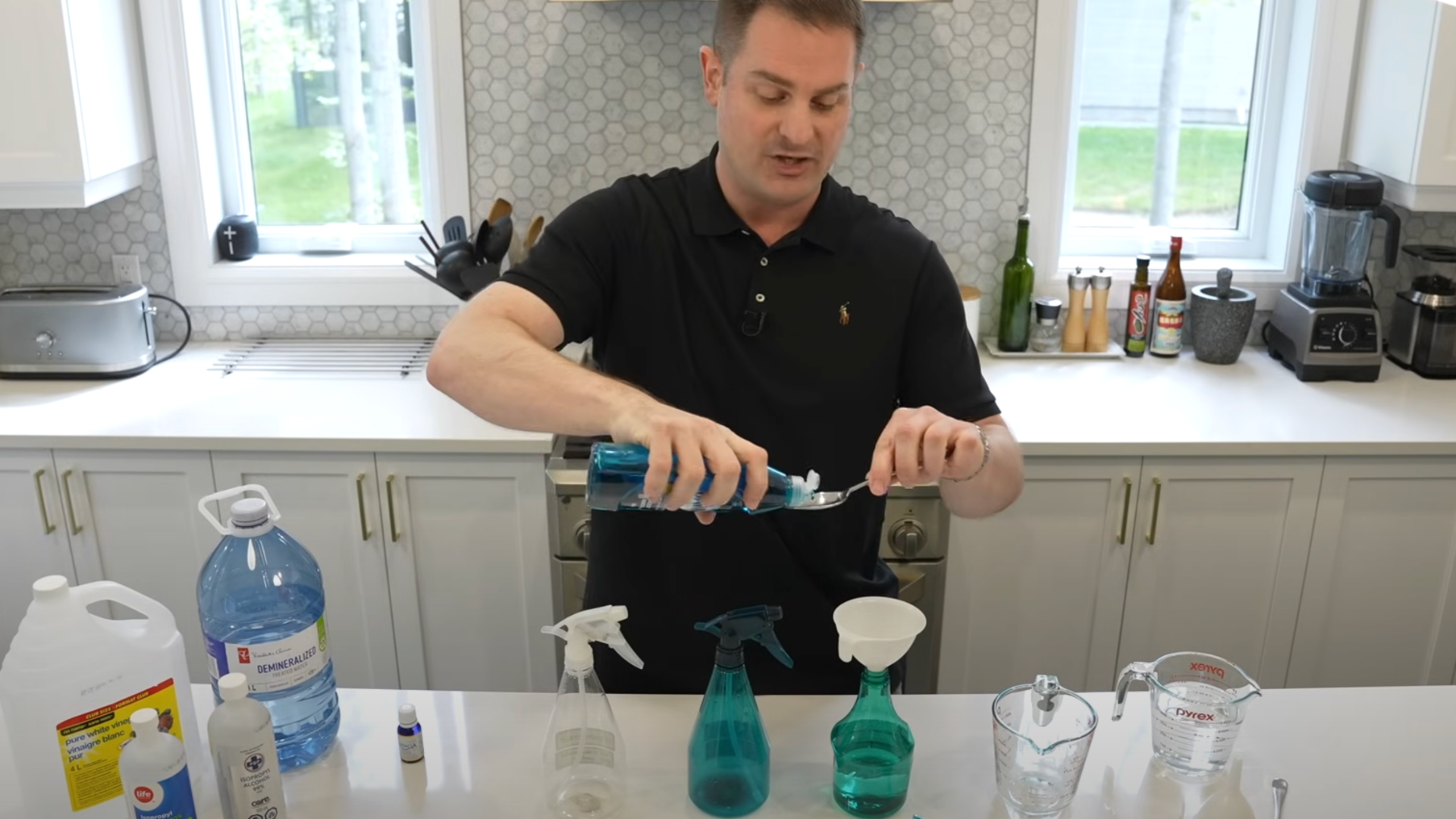
- Step 1: Pour Water – Add 2 cups of waterinto a spray bottle using a funnel.
- Step 2: Add Dish Soap – Add 1 tablespoon of dishwashing liquid (Dawn works well).
- Step 3: Mix – Close the bottle and shake gently to mix the ingredients.
This cleaner is great for general dusting, cleaning countertops, and picking up spills.
2. Stone Countertop Cleaner
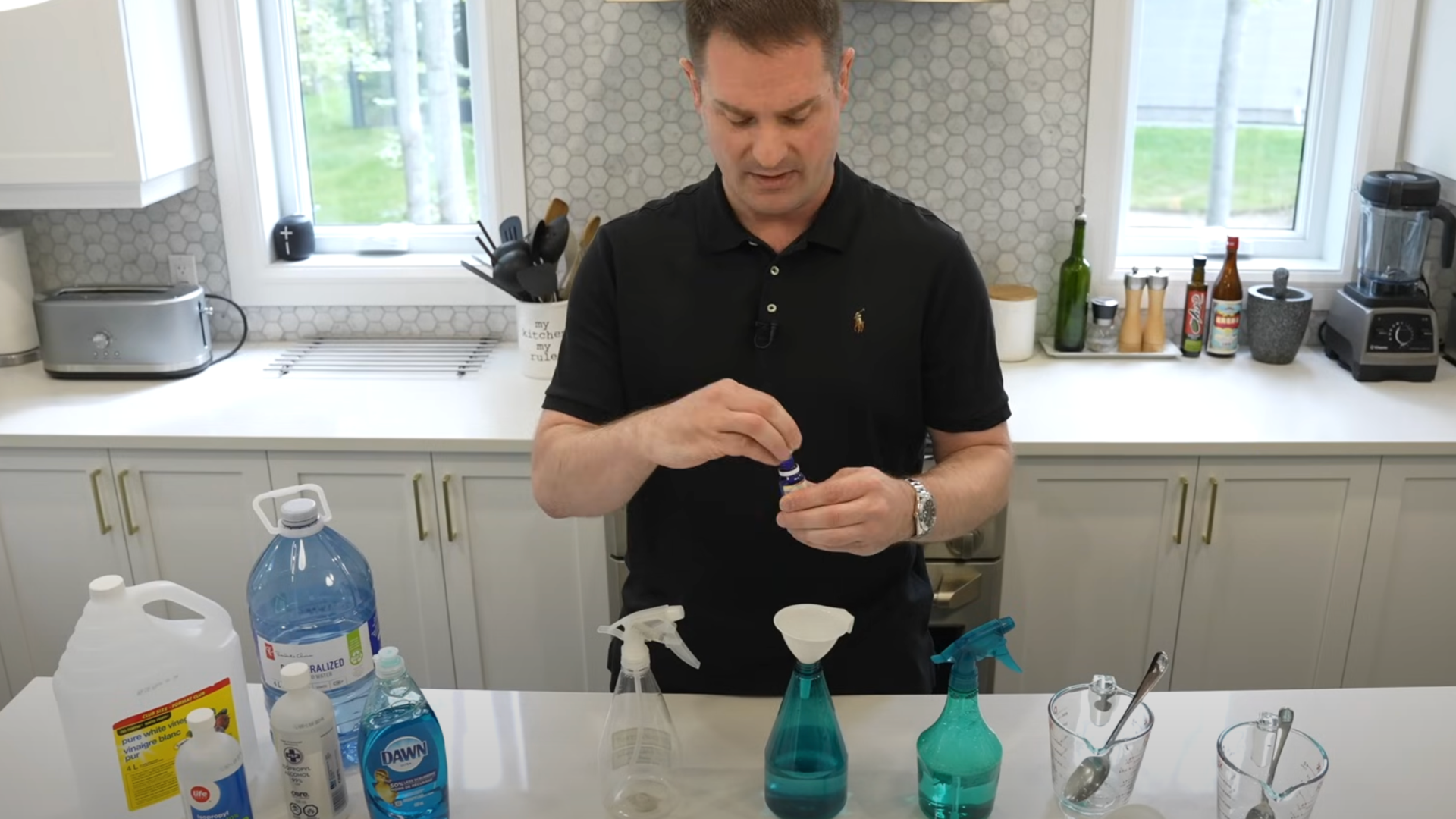
- Step 1: Pour Water – Add 1 and 3/4 cups of waterinto a new spray bottle.
- Step 2: Add Rubbing Alcohol – Add 1/4 cup of isopropyl alcohol (90% or 99% recommended).
- Step 3: Add Dish Soap – Add 1 teaspoon of dishwashing liquid.
- Step 4: Add Essential Oils – Add 10-20 drops of essential oils (lavender or another of your choice).
- Step 5: Mix – Close the bottle and shake it to mix everything.
This gentle yet effective cleaner is safe for marble, granite, quartz, and other sealed surfaces.
3. Stainless Steel Cleaner
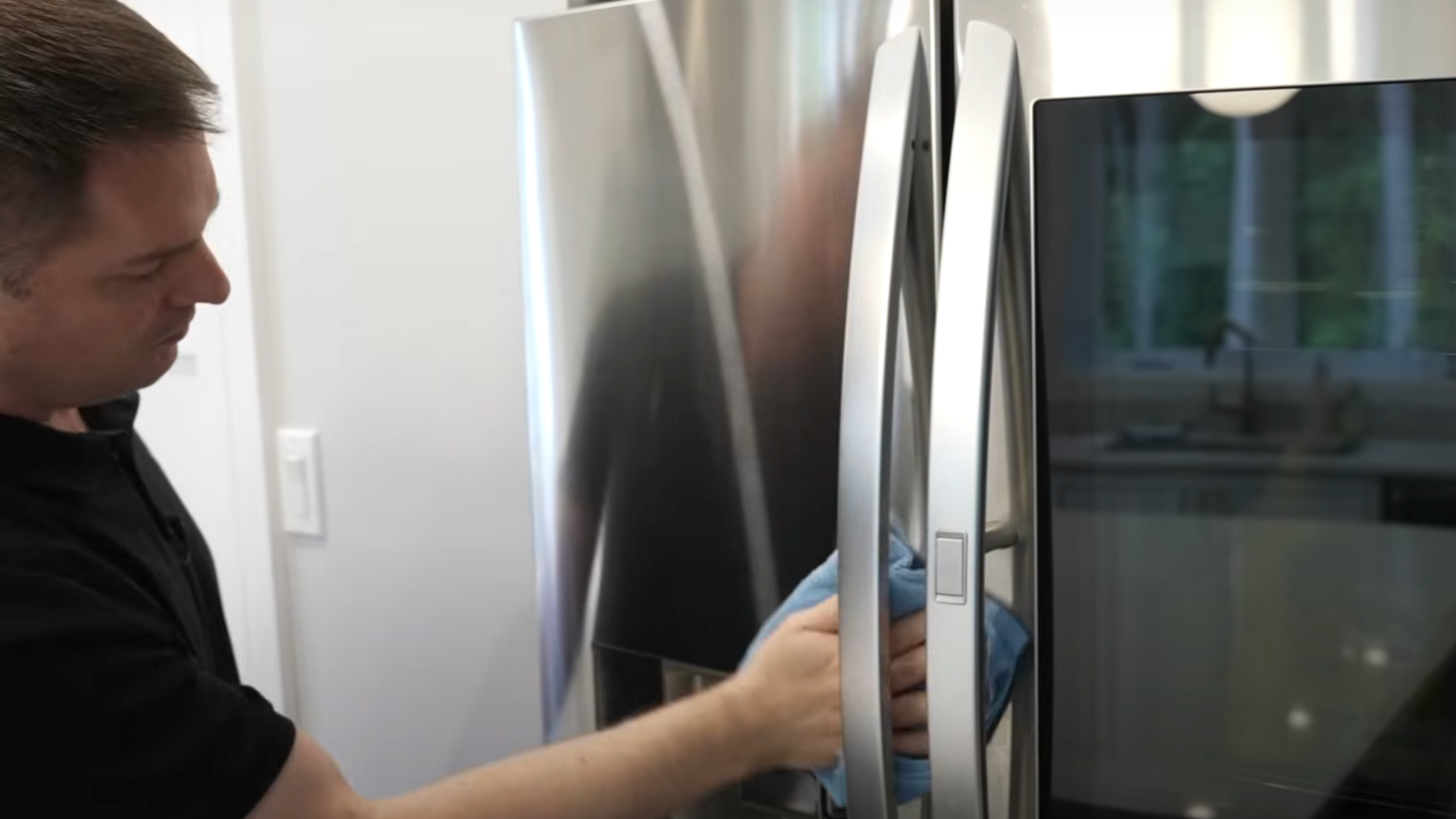
- Step 1: Add Isopropyl Alcohol – Pour 70% isopropyl rubbing alcoholinto a spray bottle. No dilution needed if using this concentration.
- Step 2: Shake – Close the bottle and shake gently.
This cleaner works great for removing smudges and fingerprints from stainless steel appliances, leaving a shiny finish.
Bonus Cleaners
1. Hardwood Floor Cleaner
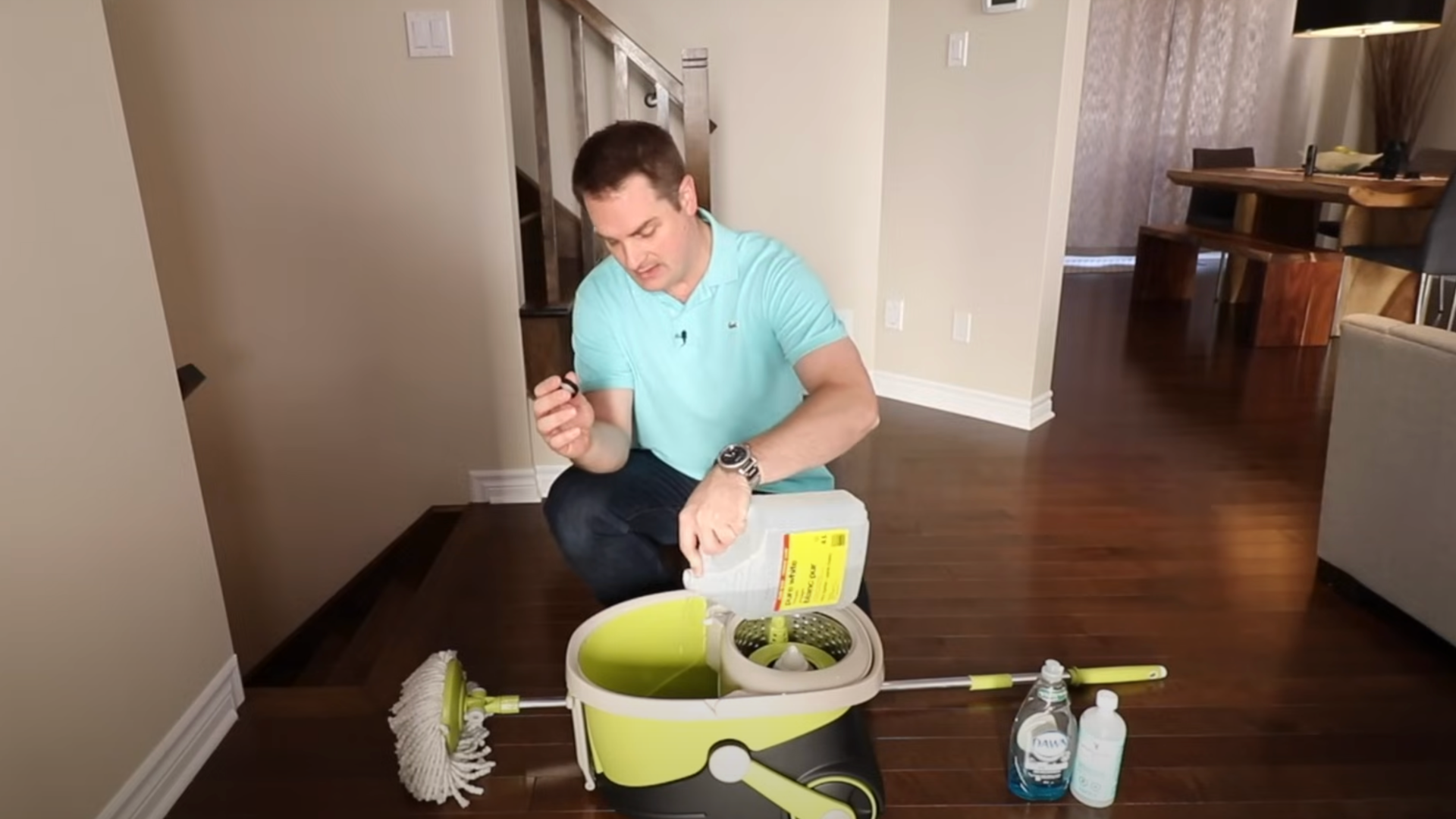
Ingredients:
- 2 cups water
- 1/4 cup white vinegar
- 1/2 teaspoon dishwashing liquid
- A few drops of essential oils (optional)
- Use sparingly on a mop head.
2. Glass Cleaner
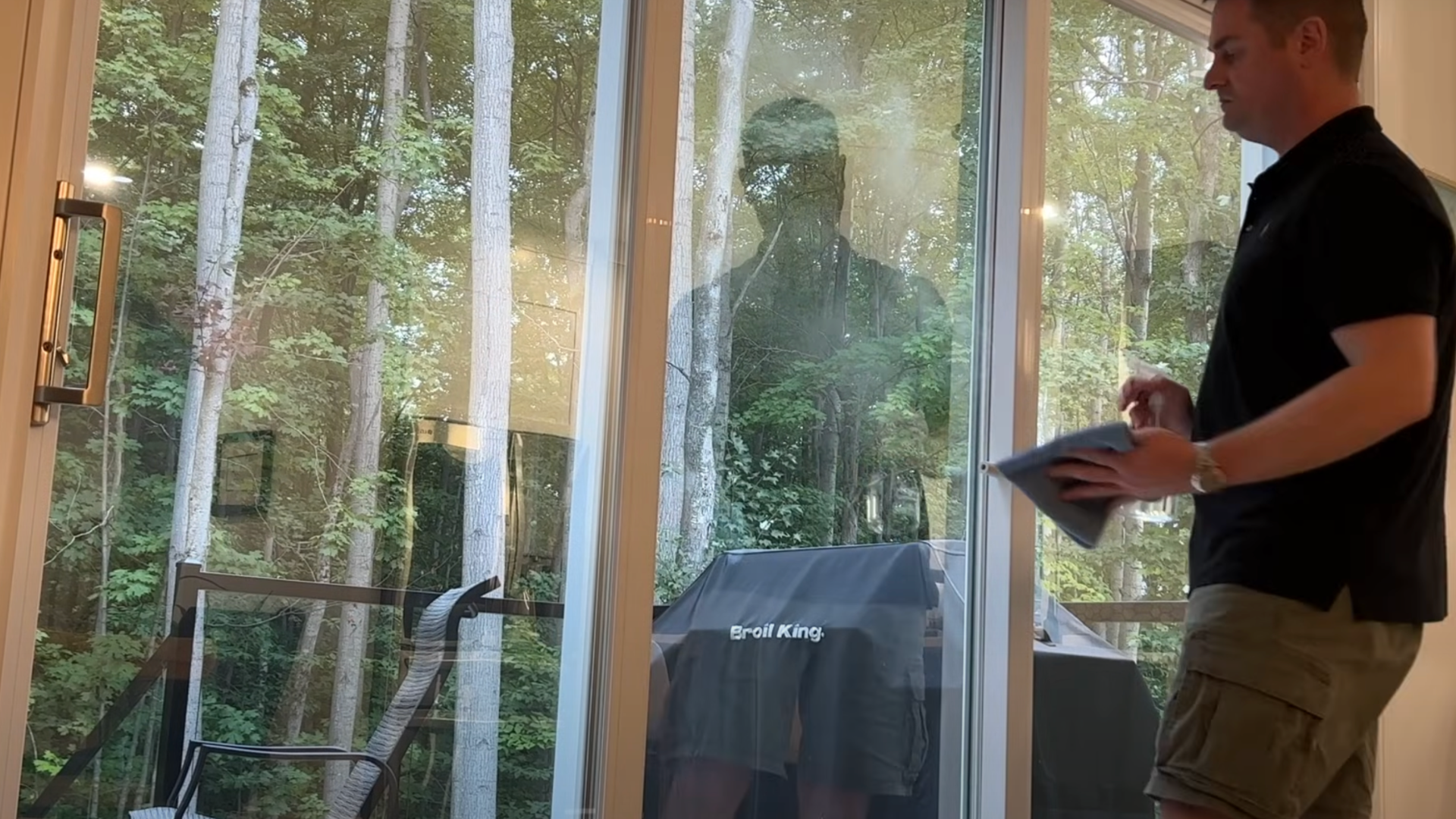
Ingredients:
- 50/50 mix of distilled water and white vinegar
- Spray on glass surfaces and wipe with a microfiber cloth.
3. Soap Scum Remover
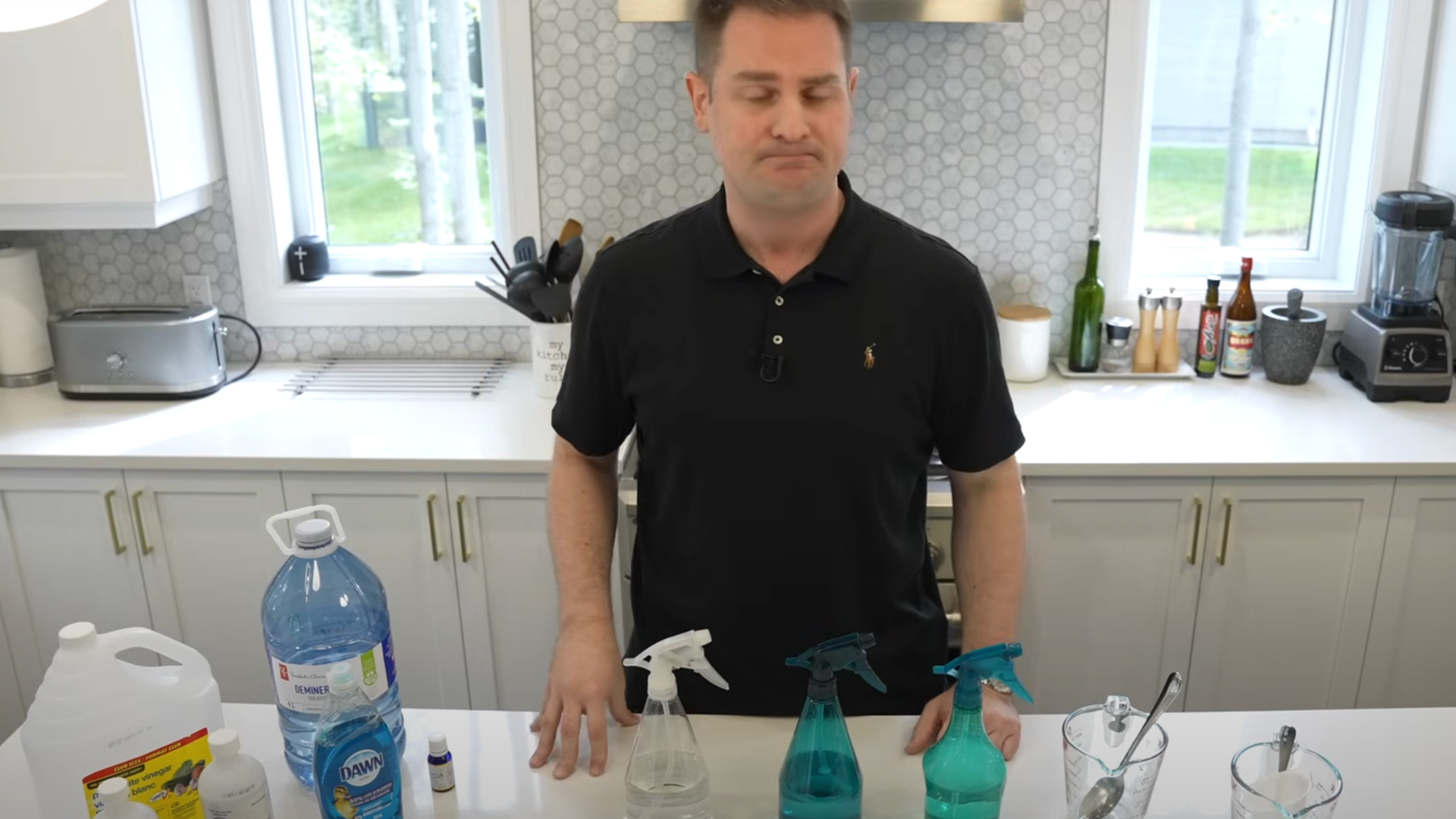
Ingredients:
- 1/2 cup water
- 1 cup white vinegar
- 10-20 drops of tea tree essential oils
- Spray in your shower to prevent soap scum buildup.
To get a clearer picture of each step and see the process in action, check out this helpful video from Pan The Organizer, it makes everything easy to follow and really brings the DIY cleaners to life!
Safety Precautions
When making and using homemade cleaners, safety comes first.
- Protective Gear: Always wear gloves and safety goggles when handling cleaning solutions. It’sbetter to be safe than sorry. Protect your skin and eyes from irritation.
- Surface Testing: Before applying the solution to the whole surface, test it on a small, hidden area. This will ensure it won’t damage or discolor the surface. It’s a simple step that can save you from a lot of trouble later.
- Avoid Mixing: Never mix bleach with vinegar or ammonia. Doing so can create harmful fumes that are dangerous to breathe in. Keep your cleaning solutions simple and safe.
- Environmental Care: Be mindful of the plants and grass around you. If the solution accidentally sprays onto them, rinse it off immediately. Protecting your garden while cleaning is just as important as keeping your home clean.
Eco-Friendly Alternatives
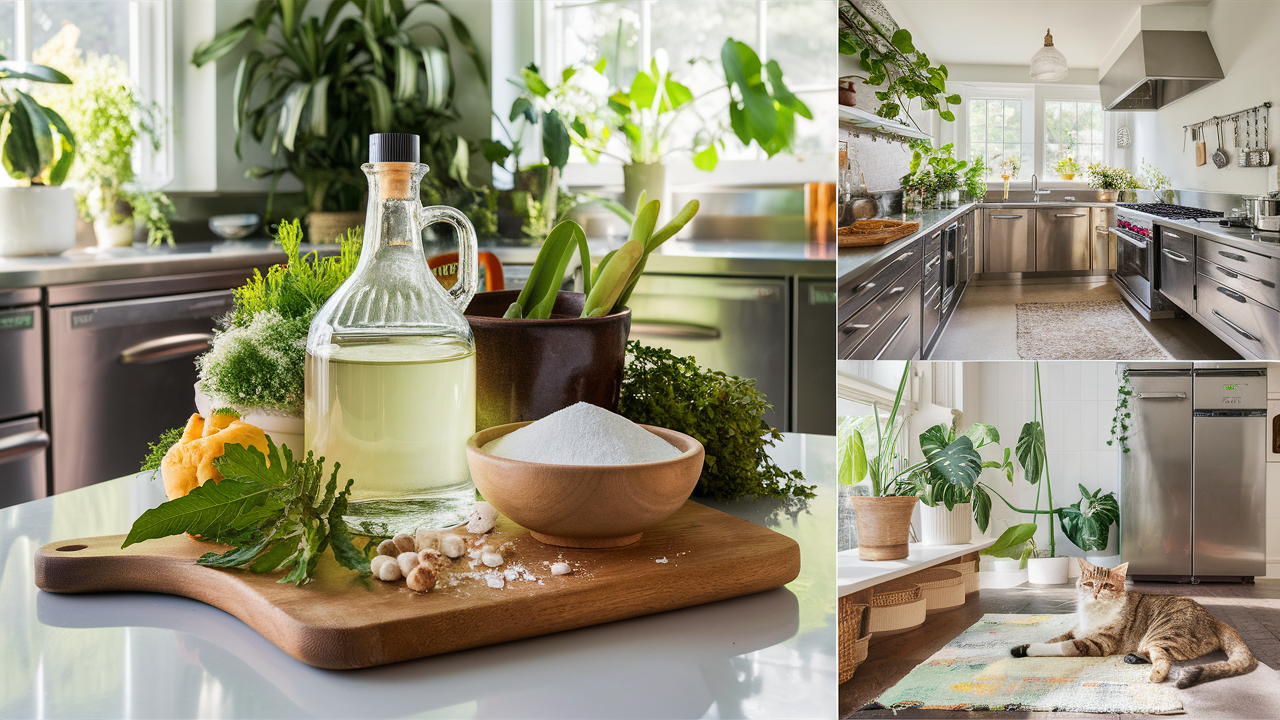
If you’re looking for a natural cleaner, here’s a great alternative: a vinegar-based solution.
Ingredients
- 1 gallon of white vinegar
- 1 cup baking soda
- 1 tablespoon dish soap
This simple mix is powerful, eco-friendly, and easy to make. It’s safe for the environment, non-toxic, and biodegradable, which makes it a great option for households with pets or plants.
Benefits
- Non-toxic and biodegradable: It’s gentle on the planet and your home.
- Safe for plants and pets: No harsh chemicals that could harm your family or garden.
- Effective against light mold and mildew: It works well for cleaning most surfaces without the use of toxic chemicals.
Keep in mind, this solution may need a little extra time or a few more applications to tackle heavy stains or mold.
I did notice that it’s not as fast-acting as some commercial cleaners, but it’s a safer, greener option for regular cleaning.
Tips for Optimal Results
To get the best results, timing is important.
- Timing: It’s best to clean on a cool, overcast day. The solution won’t dry too fast, giving you more time to scrub and rinse properly. Hot, sunny days can cause the cleaner to dry before you finish, leaving streaks behind.
- Regular Maintenance: For long-lasting cleanliness, apply a light wash every 6 to 12 months. This keeps dirt and grime from building up andprevents tough stains and mold from taking hold.
- Equipment Care: Remember your sprayer or pressure washer. After each use, clean it thoroughly. This prevents clogging and keeps your tools in good working condition for the next time you need them.
Conclusion
Crafting your homemade house wash is a simple, affordable, and eco-friendly way to keep your home’s exterior looking fresh.
With just a few basic ingredients, you can remove dirt, mold, and grime without the harsh chemicals found in commercial cleaners.
By following the right steps and taking a few precautions, you can achieve professional-level results at a fraction of the cost.
It’s an easy, effective solution for homeowners looking to save money and protect the environment.
So, gather your supplies, mix up your solution, and give your home the refresh it deserves! You’ll be amazed at how simple and satisfying it is to keep your house clean with a homemade wash.
Frequently Asked Questions
What If I Don’t Have All the Ingredients?
You can substitute ingredients like dish soap or vinegar with similar home products. Just make sure to test the solution first.
Is Homemade House Wash Safe for Pets?
Yes, once the surface has dried, it’s safe for pets. Just be cautious of any leftover solution that could be harmful before rinsing.
How Often Should I Clean My Home’s Exterior?
It’s recommended to clean your home’s exterior every 6 to 12 months to prevent dirt buildup and mold growth. However, more frequent cleaning may be needed for high-traffic areas.
Can I Use This Solution for Cleaning Decks?
Yes, you can use this homemade house wash on wooden decks. Just ensure to test it on a small spot first to avoid any discoloration.

